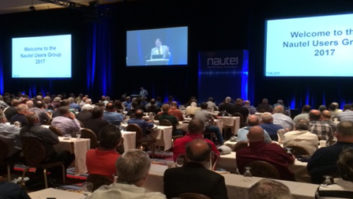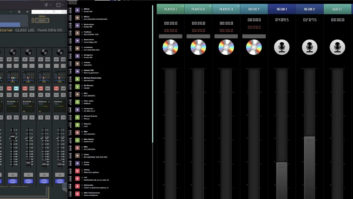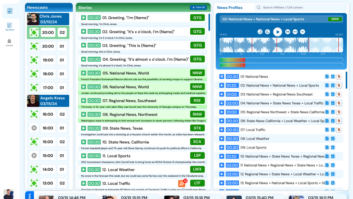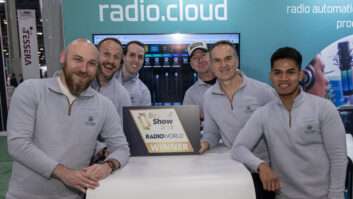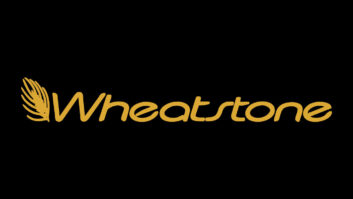Bill Jackson cautions us to beware marketing terms and jargon.
“Cloud is a buzzword. There are some workflows that are great. Others, not so much. It really depends on an organization’s use case, size, budget considerations and workflows being considered.”
Jackson, principal studio engineer at Educational Media Foundation and its K-LOVE and Air1 Media Networks, says he doesn’t mean to speak ill of cloud technology.
“We use them for some workflows. Others, we do not, nor should we. I am a fan of using cloud for the right workflow. For other workflows, cloud is a ‘deal-breaker.’ Careful, thoughtful and prayerful consideration helps us determine what we move to the cloud and what we make hybrid-cloud, cloud on-prem or keep as bare metal.”
Selective virtualization
EMF has been in a year-long project using VMware to virtualize studio and delivery functions wherever it makes sense to do so.
“Virtualizing playout automation using RCS Zetta was the first goal. We had great success in that endeavor,” he said.
“The next effort was to virtualize the talent’s phone interaction and editing. Our talent love using Wheatstone VoxPro and that was a bit more challenging. We were 100 percent successful, and working with Wheatstone on overcoming the challenges of doing something that had never been done before was a real pleasure.
“The Telos Alliance has also been wonderful in supporting our efforts for processing, encoding, routing and control and some other desires to remove physical hardware and virtualize,” he continued.
“So far, we have virtual machines in two different virtual clusters on opposite sides of the country. The goal is to be able to completely operate multiple networks out of either virtual cluster with as little consumer interruption and talent disruption as possible. To do so for maintenance or disaster recovery has been paramount.”
Jackson said EMF is working with some other unnamed partners to virtualize certain broadcast-related aspects.
“Furthermore, we were blessed to begin the foundation for an artificial intelligence engine to help achieve some of our objectives. The AI efforts of two particular members of our team are paying huge dividends. I see those growing in the next several years as well.”
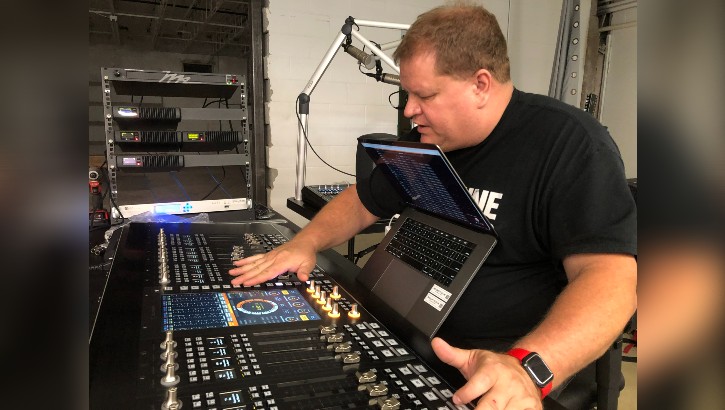
End to end
Jackson acknowledges that almost every function in a radio station or network could be affected by the cloud.
“I think you are going to see an entire cloud-based radio facility. For some broadcasters, everything — all office and business functions, traffic, scheduling, playout/automation, distribution to the transmitter site, IP delivery CDN, even future methods of consuming content, most of the air chain… almost everything, for some broadcasters, will be accomplished in the cloud in the not-too-distant future.”
Early adopters, he said, have shown the importance of designing for resiliency to handle failures in the cloud and connectivity. Jackson also reminds us that nothing can ever be fully secure.
“A better user approach might be to work with a provider to understand best practices to handle risk mitigation. What barriers can be placed to help prevent malicious attacks and human error? As long as there are humans, networks and nodes on those networks, there will be risk. ‘Fully secure’ is not a thing.”
Are broadcasters streaming substantial parts of their broadcast day via the cloud?
“Broadcasters had better be. There will come a time that all content is consumed over flavors of Internet Protocol. Broadcasters should be and should have already been ‘streaming.’” (But Jackson notes that “streaming” itself is another one of those buzzwords that can mean multiple things.)
“A broadcaster needs to be providing content to the device and via the method by which that device receives and the user ‘consumes’ content. Mindset change time! I suggest stop calling them listeners. Start calling them consumers. They consume your content over the air, on your website, in your app, on social media … the list goes on and on. There’s a paradigm shift happening. Recognize it for what it is and adapt.”
What other important considerations should we be aware of on this topic?
“Carefully read and consider the Terms of Service from a potential cloud provider,” he offers.
“It’s a different world. Your hiring practices for some types of broadcasters could affect your availability of cloud resources — e.g. for faith-based organizations. No one wants to read them. I suggest that your management or legal advisors do so before you enter into a binding agreement.”
This story originally appeared in the free Radio World ebook “Cloud/IP-Based Content Creation & Delivery.”






